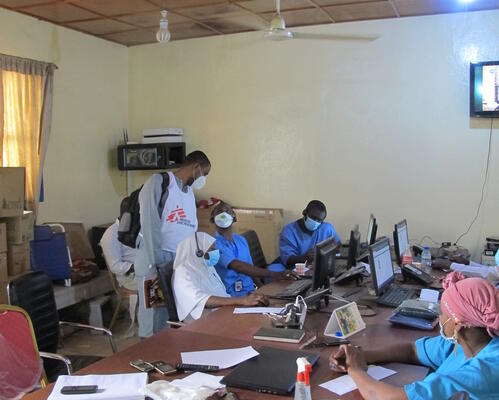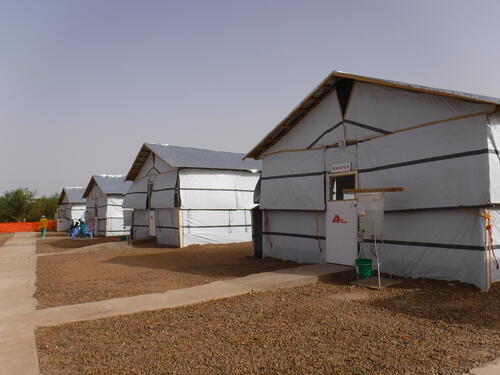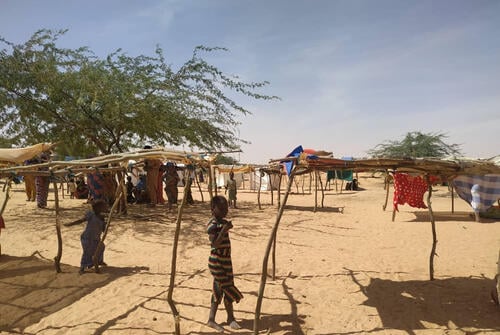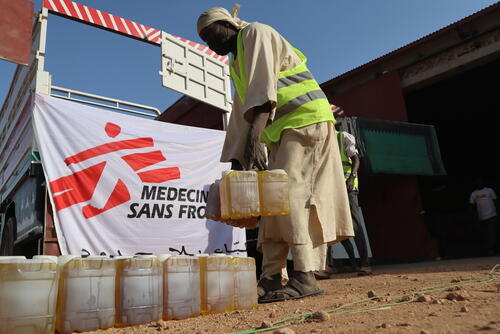Dr Ann W. Mumina is the medical coordinator for MSF in Niger. In this interview, she explains the importance of working with communities to strengthen our response to the COVID-19 pandemic.
What is the situation today in Niger with the COVID-19 pandemic and what are your concerns?
Five weeks after the first coronavirus case was reported in the capital Niamey, Niger today has close to 750 people registered as positive for COVID-19 (as of 3 May 2020). Thirty-six have died. Although Niamey is now the epicentre of the disease in the country, this has not prevented the pandemic from spreading to other regions.
In such a situation, we face several challenges, in addition to the difficult access to protective equipment, as everywhere else in the world.
The first challenge is people’s suspicion about the existence of this disease. There are many rumours and speculation about COVID-19 and we have to be very transparent about data and measures that are taken.
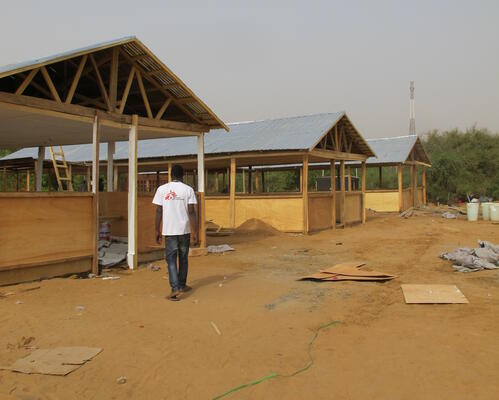
The second challenge is more specific to Niamey, where the majority of cases are now concentrated. While we have just finished building a treatment centre for COVID-19 patients, in support of the Nigerien authorities, MSF is also supporting the Ministry of Health, through the SAMU’s 24/7 call centre, as well as mobile teams in five communes in Niamey.
The aim is to improve the identification and follow-up of confirmed COVID-19 patients. But here again, to call this number, it is essential that people are informed and have confidence in the response given by experienced medical teams.
Another major challenge is related to the upcoming spike in malnutrition and malaria, which is expected to begin in June, as it does every year. A major concern is that all the energy focused on the response to COVID-19 will delay implementing activities in areas that are particularly affected by infant mortality.
And coming back to people’s confidence, it is also important that mothers aren't afraid to seek help when their children present symptoms other than those of the new coronavirus. Otherwise, we risk missing out on many patients, which could be catastrophic in the region.
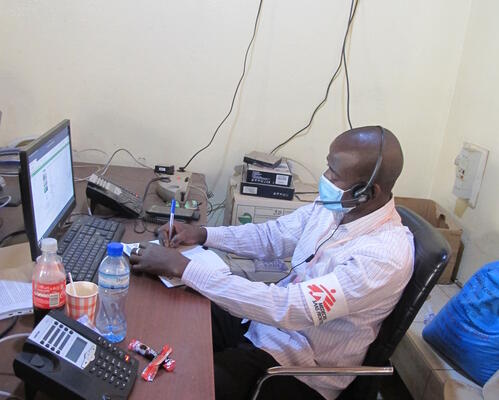
In addition, in areas affected by violence and displacement, such as in the Diffa region, on the border with Nigeria, or in Tillabéry, in the three-border area, we are concerned about the way COVID- 19 could affect the most vulnerable groups. For example, internally displaced people who live in camps and already have difficult access to healthcare.
Rumours and misinformation seem to take up more space when it comes to COVID-19; what can be done about it?
It is really essential today to be close to the communities, so that they are an active part of the response, so that they take ownership and relay the various prevention messages, especially in this context of disinformation.
For this, we can draw on our experience in the Zinder region, where we have developed a large community programme to reduce infant mortality. For several years now, MSF, in collaboration with the Ministry of Health, has been working with communities in two ways on the issues of malnutrition and childhood diseases.
The first is part of our integrated management of illnesses strategy at the community level in the Magaria zone. We train community health workers, from the villages, identified by the community, so that these people can quickly take care of simple cases and refer the most complicated cases to a health centre. If patients are quickly taken care of, it prevents their symptoms from worsening, ensuring a faster recovery and therefore a decrease in the number of deaths.
The second part is about our health promotion activities. Here, we also train people in the community to proactively raise awareness of health-related issues. The objective is to encourage people to adopt good practices in order to avoid disease risks.
We have also adapted these activities to support the response to COVID-19 and we have organised training on the specifics of this illness for the people who make up our community prevention network. Still in Magaria, we have equipped 19 integrated health centres with water points and hand wash stations. Dozens of other centres in the Diffa, Agadez and Maradi regions have also been equipped.
In Niamey, where we are starting activities in the treatment centre for COVID-19, more than 170 people have been recruited and trained to treat patients, among them 20 people will be in charge of health promotion. These agents will accompany patients during their care, inform them about the disease and the preventive measures to adopt, and try to reassure patients and their families in order to counteract a certain palpable sense of panic among some.
Ramadan started a few days ago, what impact could it have on the spread of the virus?
It is necessary for all of us, caregivers and traditional and religious leaders, to communicate with people to explain the issues, especially the measures to prevent the spread of the disease, in order to ease possible tensions that may arise. To do so, dialogue is essential with certain key people such as imams or religious guides.
For some people, there is also a concern that fasting may weaken the immune system, which may lead to a risk of developing more severe forms of coronavirus. During this period, we’ll need to be particularly attentive to the most vulnerable people.
In early May, MSF will open a 50- to 100-bed treatment centre in Lamordé National Hospital in Niamey for COVID-19 patients. We support the emergency medical service’s call centre, 24 hours a day, seven days a week, and the response teams in five communes of the city to reinforce the Ministry of Health's response capacity. In our regular projects, MSF teams are working on the preparation of the response to COVID-19 pandemic in the regions of Zinder (Zinder and Magaria), Maradi (Maradi and Madarounfa), Agadez and Diffa. We are adapting and implementing triage, isolation rooms, infection prevention control measures and health promotion activities in the health facilities we support (hospitals, health centres and health units) and making referrals from remote areas to health structures. We also have COVID-19 activities in places where we offer preventive decentralised care. In some regions, we support the Ministry of Public Health in the transport of samples.



